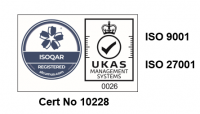Disclosure Scotland News
March 21st, 2025 by Daisy Birch
As part of the framework to update and improve the Protection of Vulnerable Groups (PVG) Scheme in Scotland, further Disclosure Scotland Act 2020 changes will be implemented from 1st April 2025. This article will answer some of the more common questions we receive, and help to guide readers about upcoming changes.
What is the Disclosure Scotland Act 2020?
The Disclosure Scotland Act 2020 is a legal framework generated by the Scottish Government, to simplify and improve disclosure processes. This includes efforts to modernise the systems in place and make disclosure of records proportional and fair to the people of Scotland. It received Royal Ascent on 14th July 2020, and has had a phased introduction.
What is the timeframe for change?
The framework allowed Disclosure Scotland to make changes gradually, obtain feedback and make improvements. This has been a gradual process of improvement, to allow stakeholders to review and discuss how each element could be implemented. This also allowed for feedback for those undertaking safeguarding roles at a more direct level. Recent changes to online applications were not originally part of these planned changes, however, timescales have been altered and implementations adjusted after the covid pandemic.
What will be changing on 1st April 2025?
Numerous core changes will be happening with the next release of this legislation. These are outlined below:
Pricing change – Disclosure Scotland have completed their pricing review and all prices remain the same with the exception of the new PVG Scheme Record for an existing member, which reduced from £59 to £18. Fees are summarised below:
Name changes – as part of this modernisation, Disclosure Scotland have decided to amend the names of check types to the following:
Current product/Equivalent product | Current Fee | Future Fee |
| DS Basic Disclosure / Level 1 | £25 | £25 |
| DS Standard Disclosure / Level 2 | £25 | £25 |
| DS Enhanced Disclosure / Level 2 with barred list check | £25 | £25 |
| PVG scheme record / Level 2 (PVG) (Join) | £59 | £59 |
| PVG scheme record / Level 2 (PVG) (Existing) | £59 | £18 |
| PVG short scheme record / Level 2 (PVG) (Existing) | £18 | £18 |
| Statement of scheme membership / Confirmation of PVG scheme membership | £59 (Join) / £18 (Existing) | £59 (Join) / £18 (Existing) |
Mandatory membership – It will become mandatory to be a member of the PVG Scheme for regulated roles with children and protected adults. The requirement will be that:
- anyone carrying out a regulated role must be a member of the PVG scheme for that type of work, for example, work with children and/or protected adults
- organisations must not offer any type of regulated role to an individual unless they have received a PVG scheme disclosure
Legal requirement – The current legislation makes it an offence for an individual to try and work with groups that they know they are banned from working with. The changes will extend this to make it an offence for:
- individuals to carry out a regulated role if they are not a member of the PVG scheme
- organisations to offer a regulated role to an individual who is not a member of the PVG scheme
There will be a grace period of 3 month from the 1st April to allow organisations to fully assess their role and implement any required changes.
Positions of responsibility – Regulated roles will be extended to include holding a position of responsibility. This extension ensures that roles where there may have been uncertainty are now included, specifically where the main purpose of the role is the provision of benefits to children and/or protected adults. Common examples include:
- trustees
- board members
- management committee members
There is also a requirement for organisations to ensure that PVG membership is in place for those ‘exercising power or influence’ over protected groups. This definition includes the following roles:
- assisting, facilitating, permitting or impeding progress towards a desirable objective or outcome for a particular child or protected adult
- making decisions of an operational or strategic nature that could have an impact on a number of children or protected adult
- persuading or putting pressure on a particular child to behave or act in a certain manner for the financial gain or personal gratification of a person other than the child or protected adult
If you have any questions regarding the above information, please get in touch with the team at contact@ddc.uk.net or 0116 260 3055





